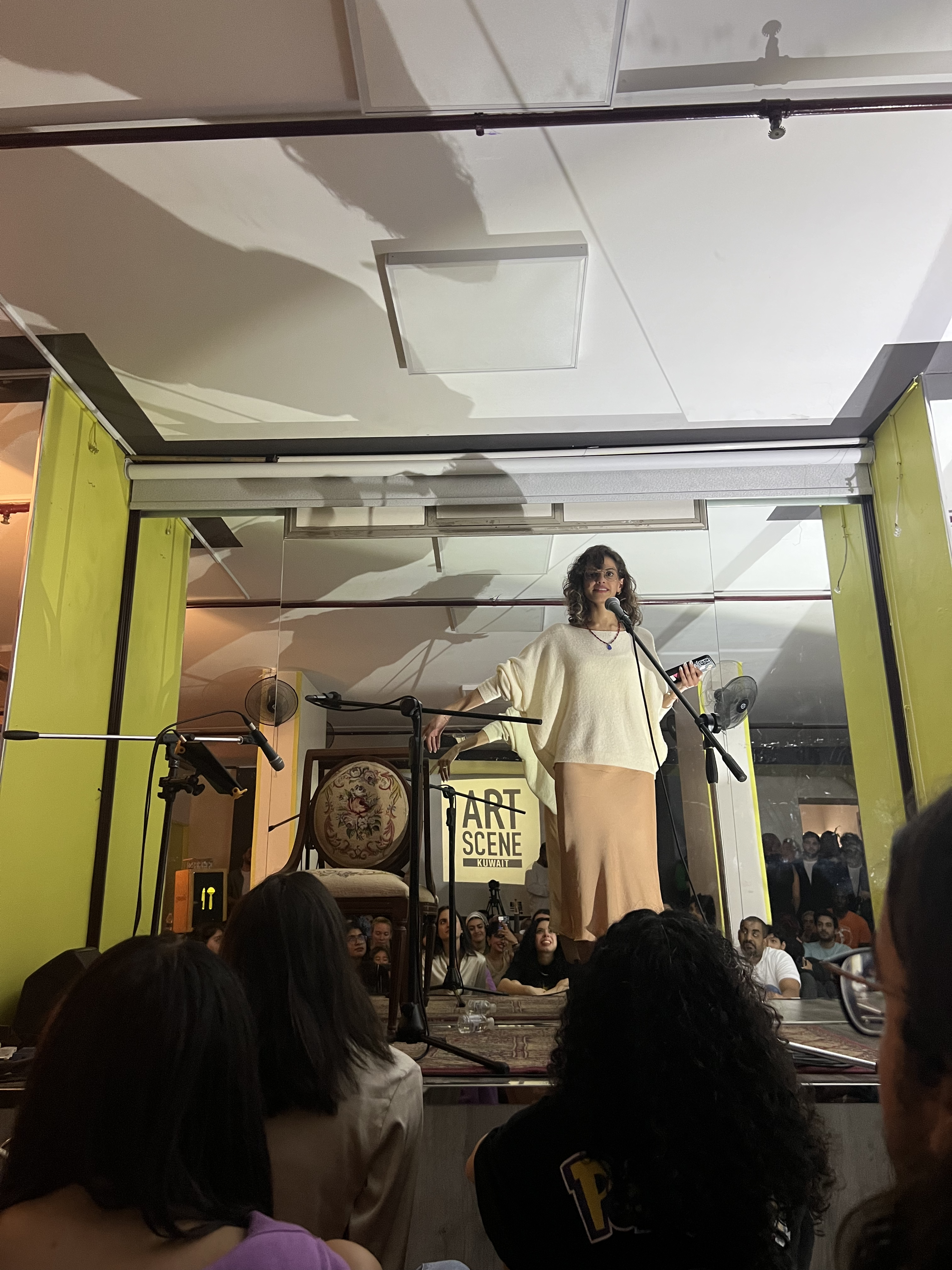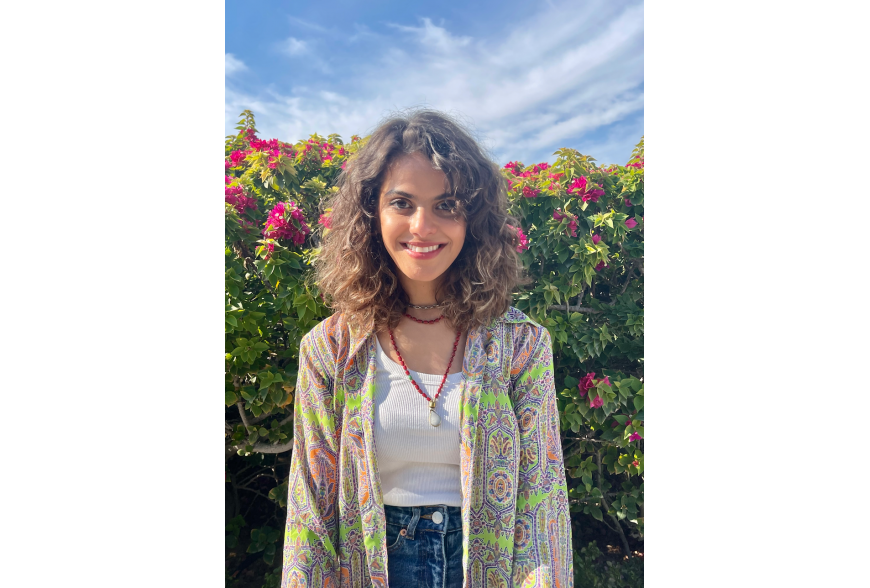The power of artistic expression: Farah Alwugayan

"Our truth is within our emotions. Standing in my vulnerability is my superpower. I invite everyone to take the risk of taking space and allowing their true selves to grow in expression."
Could you tell us about your most recent book and the inspiration behind it?
Navigating the Body in Negative Space is a visual chapter book with a poetic monologue about navigating the body within its internal sensory processing experience in the external world. It’s about discovering my physical presence in different settings and environments and exploring what that means. I am always naturally immersed in high sensory experiences, smells, textures, temperatures, brightness, taste, et cetera. I learned that I have synesthesia, “which is when you hear music but see shapes. Or you hear a word or a name and instantly see a color. When you experience one of your senses through another.” It’s both fun and tiring to experience life this way, so from there, I decided to elaborate on the journey to connect to others through my lens.
How do you approach the creative process of writing poetry?
My creative process is spontaneous and intuitive. I always write my words as soon as they come to me, unleashing the flow of words to channel through my fingers. I allow myself to write freely, even when my inner critic tries to structure the process. My best poems were written in the state of being unchained in awe of creativity, not knowing where my words would go and later finding them to be written in a complete comprehensive poem.
Who are some of your biggest influences in poetry?
Andrea Gibson has always had a significant impact on my poetry journey growing up. I’ve also recently been revisiting Virginia Woolf’s work. I enjoy finding similarities in the verses and lines of great poets. It gives me a sense of familiarity in my own experiences. Language is a miracle that I pray will only evolve in its depth and be preserved through time.
How has your poetry evolved over time?
Because my poetry is heavily derived from my interest in psychology and emotions, I have continuously developed different character perspectives within my work over the past six years. Still, as I continue to evolve my craft, my voice remains the same.
What do you hope readers take away from your poetry?
My main intention in writing is to convey the diverse narratives of one’s experiences in life. Some of the more serious topics I delve into are existential ideas, psychological states and neurodiversity, social justice, and the journey of love. Sometimes romanticizing simpler moments viewed as mundane aspects of life, I have poetry about the simple act of drinking water and folding clothes.
I naturally picked up the message of seeking truth, creating acceptance around certain topics and highlighting often dismissed struggles. My poetry organically tapped into the spectrum of neurodiverse experiences breaking down stigmas. I hope my readers grasp the multilayers of my words and decipher my poetic expression in its entire range of meaning.
What advice would you give aspiring poets who want to follow in your footsteps?
That it’s okay to feel big feelings and dive into the deeper layers yourself, that sharing is part of healing. That love is a transformative force.
Can you tell us about the experience of performing particularly difficult or emotional pieces of poetry and how you deal with those emotions?
Poems about grief are always the most difficult to read after writing. Every time I re-read or perform these pieces, I am practicing the stages of grief repeatedly, and I understand that this is a part of healing. It’s funny and courageous that I willingly go back to reading or performing these pieces to rip the band-aid for catharsis when I feel stuck in grief. Another major emotional part of being a performance poet is the post-performance vulnerability. I am always reminded that my vulnerability is a strength and that sharing my poetry with others is an act of bravery.
How do you connect with your audience during your poetry readings and performances?
Being on stage is one of my favorite places to be. Standing in my vulnerability is a power that invites the audience’s vulnerability to unravel naturally. We speak within the trance of emotional release while I perform. I energetically feel the audience open up and I’m always exhilarated to see their expressions soften from the stage. I love when people come to talk to me after performing or messaging me about their experiences it feels rewarding to see that committing to what I’m passionate about actually impacts others around me.


